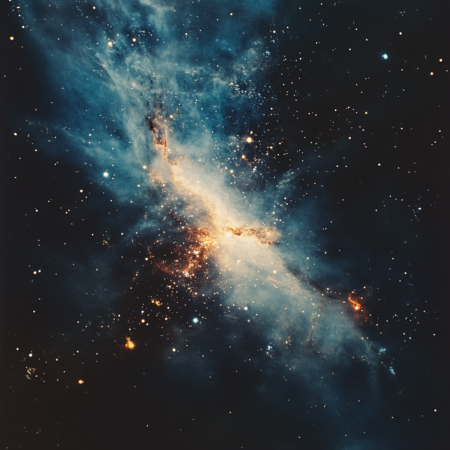Essential Insights
- Elevating Understanding of Dark Energy: New data from the Dark Energy Spectroscopic Instrument (DESI) suggests that dark energy, which drives the universe’s accelerating expansion, may be evolving over time, challenging the established “cosmological constant” model.
- Massive 3D Cosmic Map: DESI’s unprecedented 3D map of the universe, incorporating nearly 15 million galaxies and quasars, enhances precision in studying dark energy’s effects over 11 billion years, showing stronger evidence of its potential evolution compared to previous analyses.
- Collaboration and Innovation: With over 900 researchers from 70 institutions, DESI represents a significant international effort, utilizing state-of-the-art technology to capture light from thousands of galaxies simultaneously, furthering our quest to understand the universe’s fundamental nature.
- Future Investigations: Ongoing analyses and future data collection from DESI and complementary experiments are anticipated to refine our cosmological models, highlighting the need for potential breakthroughs in understanding dark energy and its role in shaping the universe.
The Evolving Nature of Dark Energy
Recent findings from the Dark Energy Spectroscopic Instrument (DESI) collaboration shed light on one of the universe’s greatest mysteries: dark energy. This mysterious force drives the accelerating expansion of the cosmos. DESI’s groundbreaking work, featuring the largest 3D map of the universe, allows researchers to examine dark energy’s impact over the past 11 billion years. While previous theories suggested dark energy remains consistent over time, DESI’s data hints at the possibility of its evolution. These revelations pose significant questions about our understanding of cosmic behavior and the universe’s ultimate fate.
The collaboration’s research consists of data compiled from observing nearly 15 million galaxies and quasars. This dataset, significantly larger than prior analyses, displays a marked preference for an evolving dark energy model. Researchers note that different lines of evidence now suggest that the influence of dark energy may be decreasing. Such insights elevate the urgency for scientists to reconsider established cosmological models. As Will Percival aptly stated, the simplest explanations may require modification as new data emerges. It highlights how scientific inquiry constantly evolves alongside our expanding understanding of the universe.
Implications for Future Research
Continued exploration into dark energy remains essential. DESI currently operates at the Kitt Peak National Observatory and will refine its findings in the coming years. Its ongoing studies promise to deepen our understanding of cosmic phenomena. Moreover, DESI’s data release allows other researchers to contribute to this pivotal field, enhancing collaboration and knowledge-sharing. As new experiments arise, they will complement DESI’s findings, encouraging a multi-faceted approach to cosmology.
The implications of these results resonate far beyond theoretical physics. Understanding dark energy’s nature could shape future technological advancements and inspire new scientific methodologies. As humanity delves into the mysteries of the universe, we take a significant step toward realizing our place in it. In this quest for knowledge, we not only explore the cosmos but also enrich the human experience, potentially altering our trajectory. With every discovery, we enhance our understanding of existence itself.
Discover More Technology Insights
Learn how the Internet of Things (IoT) is transforming everyday life.
Stay inspired by the vast knowledge available on Wikipedia.
TechV1

